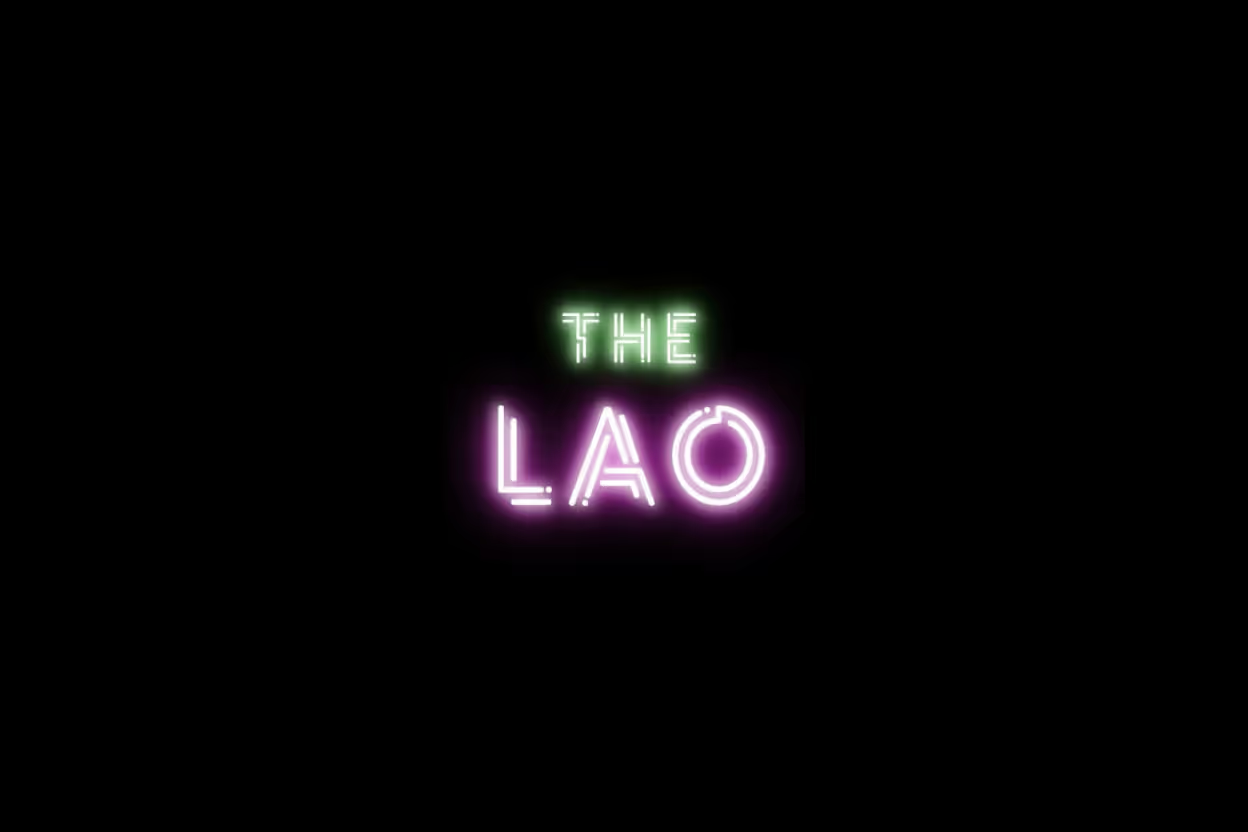Hashed stands out as a leading investor and accelerator in blockchain, known for shaping some of the sector’s most influential protocols and projects. When Hashed reviews blockchain teams, it looks far beyond quick gains or short-term market hype. The firm seeks founders who are not just building new tech but actively pushing forward decentralized solutions and strong communities.
If you're fundraising or evaluating new investments, it's important to understand what gets Hashed’s attention. The team weighs factors like vision, execution, and a project’s potential to deepen decentralization. For founders, getting this insight can make or break a pitch. For VCs, knowing Hashed’s approach highlights what drives long-term value in Web3.
What type of leadership style catches Hashed’s eye? Why does strong community engagement matter? How does Hashed spot ideas with staying power in a fast-shifting industry? In this post, founders and VCs will get a clear look at what really sets a high-performing blockchain team apart when Hashed is involved.
Hashed’s Philosophy: Decentralization and Impact
Decentralization is more than a feature for Hashed; it’s the backbone of every decision the firm makes when supporting blockchain teams. Hashed’s approach centers on building a broader impact—across technology, society, and finance—by backing projects that break down barriers and shift power from a few gatekeepers to active, global communities. If you’re considering why Hashed cares so much about decentralization, start with its core belief that open, community-driven networks can lead to more fair and lasting innovation.
Why Decentralization Matters to Hashed
Hashed sees decentralization as a catalyst for positive change, not only in Web3 but across the economy and society. The firm doesn’t just look for teams building on well-known blockchains but welcomes tech diversity—anything from new protocols that fix old problems (think DAG, not just blockchain) to platforms that let users truly own their data or assets. The end goal? A more transparent, merit-based world where anyone can contribute and be rewarded.
You might wonder: Is this just about disrupting old systems, or is there a broader goal? For Hashed, the mission includes:
- Dismantling outdated monopolies in finance and governance
- Opening access to asset creation and distribution for all
- Rewarding contribution based on effort and value—not status or connections
If you’re launching a project, ask yourself, does your tech actually empower people, or does it just look good on a roadmap?
Investing for Real-World and Social Impact
Hashed invests in projects that deliver real solutions, not just theoretical tech. The team backs founders solving problems that impact users in daily life, from making global finance fairer to securing digital identities. Hashed’s portfolio features:
- Layer-1 and infrastructure projects that address scalability and development ease (e.g., ICON, Quantstamp)
- Stablecoin and on-chain finance solutions that help everyday users, not just traders (e.g., Terra, SendRemit)
- Security tools that make the blockchain safer for real people and businesses (e.g., Sentinel Protocol)
Hashed also supports “reverse ICOs”—established web companies moving to crypto—and projects driving inclusion, such as remittance apps for underbanked populations.
Is your project reaching beyond the crypto bubble? This is a key question for both founders and investors who want Hashed’s support.
Community Building as a Core Value
Building a strong community isn’t optional for Hashed-backed teams—it’s a requirement. The firm believes a project’s staying power depends on real network effects and active contributors. To support this, Hashed:
- Hosts events, developer hackathons, and conferences in both mature and emerging markets
- Backs educational efforts to grow technical skills and participation globally
- Partners with founders early, providing direct feedback and introductions
Are you seeing true grassroots momentum? Hashed looks for organic engagement, not just follower counts or flashy marketing.
The Importance of Regulatory and Ecosystem Advocacy
Hashed knows decentralization works best when it fits into the broader legal and economic framework. The firm invests in research, partners with regulators, and joins policy discussions to help build rules that protect users while allowing innovation to thrive. This includes:
- Supporting open regulatory frameworks around crypto and stablecoins
- Promoting interoperability across blockchains and protocols
- Encouraging projects to think cross-border, not just regional
How does your project address regulation and compliance hurdles? For Hashed, innovation and rule-following are not opposites—they go hand in hand for long-term impact.
Big Picture: Meritocratic, Inclusive Platforms
At the heart of Hashed’s philosophy is the belief that decentralization creates better, fairer ecosystems. Hashed isn’t looking for projects that just mimic the old financial industry with a new face. Instead, the team searches for founders who want to build merit-driven, open systems where anyone can contribute, collaborate, and own a stake—no matter where they live or who they know.
Ask yourself: Are you building something that people want to join, improve, and trust? That’s the kind of impact Hashed is interested in, and it drives every investment and accelerator decision the team makes.
Evaluating Team Capability and Vision
For any blockchain startup, skill and vision go hand in hand. Hashed digs deep into who is building the project, what motivates them, and how ready they are to move through challenges unique to Web3. Teams are not just measured by what’s written on their résumés, but also by how well they can adapt, handle complexity, and stay true to a larger mission. If you’re serious about attracting Hashed, showing both technical mastery and a forward-looking vision is key.
Technical Expertise and Adaptability
Technical skill sits at the foundation of any blockchain project. Hashed looks for teams with a proven ability to build and ship secure, scalable solutions that work in today’s volatile Web3 world. But strong coding and engineering chops alone are not enough. In crypto, new protocols, regulations, and network upgrades can appear overnight. Survival means adaptability.
Teams that catch Hashed’s eye show:
- Solid experience across relevant languages and tech stacks (think Solidity, Rust, cryptography)
- Hands-on knowledge of smart contract security, decentralized storage, and consensus protocols
- A track record of learning fast when networks, business models, or compliance rules shift
Why is adaptability so important? The blockchain sector is famous for quick pivots and sudden legal changes, whether it’s a new L2 scaling breakthrough or shifting KYC rules. Hashed asks: If regulators update crypto guidelines tomorrow, will your team panic—or confidently adjust course?
This is especially important in 2025, with new data standards, more complex compliance tests, and the rise of AI-powered on-chain analytics. Hashed wants founders who not only keep up, but anticipate what's next. Can your team handle integration with new protocols? How well do you respond to a bug bounty gone public, or a critical security audit?
In practice, Hashed values:
- Technical resumes that show breadth and depth, not just hype
- Leadership with a history of navigating both bull and bear cycles
- An ability to break down technical ideas for users, partners, and regulators
If your team has handled protocol upgrades or regulatory audits before, put those front and center.
Alignment With Long-Term Goals
Technical skill means little if the vision is missing. Hashed searches for founders who care about long-term impact rather than quick wins. This doesn’t mean ignoring business growth—it means balancing scale with purpose.
Teams that align with Hashed’s ethos are:
- Mission-driven: They put community and ecosystem ahead of short-term profits.
- Skeptical of hype: They avoid empty trends and focus on lasting change.
- Committed to open source: They value transparent development and public audits over closed code.
- Invested in sustainable growth: Their roadmaps show patience, not pump-and-dump cycles.
What does this look like in practice? Founders talk openly about governance, decentralization, and how their product will give users more control over assets or identity. They set realistic timelines for feature releases, but aren’t afraid to pause or pivot when it means stronger foundations.
A few practical questions Hashed may consider:
- Does your project have a clear mission and reason to exist, beyond raising funds?
- Are founder incentives aligned with user needs, or are they front-loaded for quick exits?
- Is the team building standards or platforms others want to use and build on?
- Will your roadmap hold up five years from now, not just next quarter?
Hashed knows trends come and go, but visionary teams stick around. If you’re committed to open, transparent growth—rather than a moonshot price spike—your odds of winning Hashed’s support go up significantly.
The Weight of Community and Ecosystem
When Hashed evaluates blockchain teams, it pays close attention to the reach and substance of a project’s community and ecosystem. Hashed believes that sustainable Web3 innovation depends on more than product launches or token performance. It wants to see founders building real networks—people participating, ideas circulating, and resources multiplying for all. In this section, we'll look at how Hashed assesses the strength of a project’s community-building initiatives and its contributions to the broader blockchain ecosystem.
Community-Building Initiatives
Outreach and developer engagement play a major role in Hashed’s review of any blockchain team. Strong projects do more than grow their follower count—they cultivate dialogue, participation, and skill-building at every stage. Hashed considers whether teams:
- Host regular educational events like online seminars, in-person workshops, or local meetups. These events are more than networking opportunities; they are a signal of commitment to knowledge-sharing.
- Foster transparent communication with clear, consistent updates. This can include project blogs, open AMAs, and published roadmaps so that supporters and critics alike stay informed.
- Empower developers and contributors by organizing hackathons, offering open-source libraries, and maintaining accessible developer documentation. The presence of active community channels where developers help each other is another strong marker.
Hashed knows that communities thrive when teams welcome feedback, even if it’s tough or critical. Is the project open to community suggestions on product features or governance? Does leadership respond to trouble or questions directly, or hide behind silence? These are questions Hashed asks when reviewing how genuine and resilient a project’s outreach really is.
Educational efforts matter here. Teams that invest time in onboarding newcomers—translating documents, hosting workshops, explaining decentralized concepts—are much more likely to foster loyal networks. If founders shy away from transparency or see the community as “just investors,” it quickly raises red flags.
Ecosystem Contribution and Network Effects
Hashed approaches ecosystem evaluation with a simple idea: the best Web3 teams build for more than themselves. They create infrastructure, tools, or standards that empower future projects, not just their own users.
When reviewing for ecosystem impact, Hashed looks for:
- Reusable developer tools like SDKs, APIs, and open-source contracts that lower barriers for other teams.
- Infrastructure solutions (e.g., bridges, wallets, security protocols) that benefit multiple projects or chains and promote interoperability.
- Network effects that multiply project value as more people and developers join. For example, if every new dApp on the network makes the whole ecosystem more useful—think of how Discord bots multiplied the value of Discord itself.
Projects that drive positive network effects often see their value increase exponentially. Hashed will ask: Is your project giving others a reason to build alongside you? Do you publish standards, share technical guides, or help bootstrap other communities?
Practical examples matter. A protocol that lets other developers launch tokens easily, a wallet app that supports industry-wide standards, or security frameworks that make the whole network safer—these all show that the team isn’t just looking out for itself.
Hashed cares whether a project can seed an ecosystem, not just operate within one. Teams that foster cross-collaboration, encourage open innovation, and promote interoperability rise quickly in Hashed’s assessments. If a team is seen as a builder’s builder—helping others succeed—they are much more likely to win funding and active support.
By focusing on both internal engagement and external ecosystem growth, Hashed filters for projects that can stand the test of time. Decentralized technologies need robust roots and wide branches, and Hashed looks for teams with the vision and dedication to help both thrive.
Strategic Acceleration and Support
When Hashed reviews blockchain teams, it places real weight on what happens after the investment—not just before it. Support isn’t a handshake and a check. Hashed’s approach to acceleration moves beyond the basics, focusing on providing ongoing, strategic help that directly impacts a project’s chance of hitting its next big milestone. The difference is in the hands-on involvement, the network access, and the guidance that shapes founders into reliable Web3 leaders.
What Does Strategic Acceleration Look Like?
Hashed asks: Can this team go further and faster with the resources we provide, or will they stall out after launch? The firm delivers more than money; it brings in tailored support that matches each project’s needs.
Here’s what blockchain founders can expect from Hashed’s accelerator model:
- Targeted mentorship from experts who understand technical hurdles, go-to-market challenges, and governance complexity.
- Access to deep industry ties, including introductions to exchanges, market makers, and early adopter communities.
- Iterative product feedback and regular strategy check-ins, making sure teams can adjust and optimize without losing sight of their vision.
Why is this hands-on approach effective? Founders often ask, “How do I secure those crucial first users? What do I do if my launch doesn’t go as planned?” Hashed has seen these pain points across dozens of portfolio projects. Strategic acceleration bridges the gap between theory and practice—giving teams room to grow, stumble, and then recover with expert help.
Support That Scales With Growth
Hashed does not treat every project the same. Instead, the firm adapts its support as needs change. A team building from scratch might need technical advice and community management coaching. A more established protocol might need PR help, legal introductions, or global partnership leads.
Common areas where Hashed’s support shines:
- Business development: From pilot deals to exchange listings and key partnerships, Hashed opens doors that would take most founders years to unlock.
- Regulatory preparedness: As compliance gets tougher, Hashed’s network keeps teams ready for evolving rules—critical for projects targeting mainstream users or multinational expansion.
- Recruitment and talent: Hashed knows that growing the right team isn’t just about resumes—it’s about finding contributors who understand decentralized values and long-term commitment.
Founders often want to know, “What if our tech or use case evolves?” Hashed is set up for agile support. If a public testnet needs urgent fixes, or if a business strategy pivots due to market shifts, teams have a trusted partner ready to adjust their acceleration plan.
Measuring Acceleration Success
How does Hashed know its support is working? The firm tracks both short-term and long-term signals:
- Fast response to market or technological changes
- Expanding partnerships or integrations with other Web3 projects
- Strong user retention after token launches or major product releases
- Clear improvement in internal processes or team capability
Hashed wants to see founders reach milestones with confidence, not just luck. “How do we keep momentum when things get hard?” is a question every project faces. Hashed’s answer is simple: focus on continuous growth, honest feedback, and real network leverage.
By providing strategic acceleration and tailored support, Hashed looks for teams who don’t just launch—they last. This is the kind of backing that helps turn early promise into ecosystem-defining impact.
Due Diligence and Long-Term Outlook
Hashed’s long-term support for blockchain teams starts well before any deal is signed. The group’s due diligence sets a high bar, looking past buzzwords and superficial milestones. Teams who expect to win Hashed’s trust need more than a clever white paper and tokenomics. Every claim is checked, every projection cross-examined, and every founder’s intent weighed carefully. Sustainable growth is only possible with a clear understanding of both present risks and real future potential.
What Does Hashed’s Due Diligence Process Involve?
Hashed separates hopeful pitches from real progress by asking the hard questions up front. This process does not rely on instinct alone—it combines technical audits, legal reviews, and deep conversations with founders and early users.
During due diligence, Hashed examines:
- Technical strength: Code is reviewed, not just discussed. Teams are asked about their development process, security checks, and plans for ongoing updates.
- Founders’ track record: Team backgrounds are verified. Hashed looks for honesty and resilience, not just hustle.
- Market potential: Projects must show realistic growth forecasts based on real need, not hype cycles.
- Regulatory readiness: Hashed checks whether teams understand, and plan for, current and upcoming legal demands.
- Tokenomics and sustainability: Models must support long-term engagement, not just a quick speculation rush.
Founders will often face questions like: How resilient is the protocol to changing compliance rules? Can both new and existing users benefit as adoption grows? Is your system’s security truly peer-reviewed, or just internally checked?
No detail is too small. Hashed will look for evidence in GitHub repos, talk with key community members, and—when appropriate—bring in outside experts to verify claims. If issues appear, they become discussion points, not automatic deal-breakers. Hashed values transparency and growth, even when it means pointing out blind spots.
Long-Term Outlook: Looking Beyond the Current Cycle
Hashed’s investment thesis values teams planning for the next five years, not just the next funding round. Forecasts can look impressive in a spreadsheet, but Hashed looks for proof that a team understands the full arc of building a blockchain platform.
This means paying attention to:
- Product sustainability: Are the economics built to last beyond an initial boom? Can they adjust as user demand shifts?
- Iterative delivery: Does the team show a pattern of shipping updates, learning from early users, and responding to bugs or security threats?
- Community and vision alignment: Will early believers stick around when the market cools off? Is there a clear, inclusive mission that encourages long-term contributions from developers and users?
- Roadmap credibility: Does the team set practical goals and meet them (or honestly explain pivots)? Is the vision tied to real-world problems that matter several years from now?
Hashed often asks: What will this ecosystem look like if major competitors double their pace? If a security vulnerability is found, how quickly can the team act? If regulations shift, are there built-in processes for upgrades or community-driven governance?
In today’s Web3, big promises do not equal big follow-through. Founders who make it through Hashed’s review tend to show gritty persistence, clear communication, and a willingness to evolve when data or community feedback calls for it.
Hashed’s focus on deep due diligence and steady long-term planning helps projects weather industry storms. By zeroing in on teams ready to play the long game, Hashed stays committed to sustainable outcomes for the broader crypto community.
Conclusion
Hashed’s review process centers on people, but always in connection with the broader ecosystem. The firm seeks founders who build trust, empower contributors, and grow networks that can outlast market trends. Technical skill, a clear mission, adaptability, and deep community roots are all non-negotiable. Teams that understand compliance and interoperability, keep user safety front and center, and help raise standards for everyone are set apart.
Every founder and VC reading this should ask: does my project inspire true participation and open value creation? Are we prepared for real-world regulatory shifts, security needs, and multi-chain adoption? Where is your team building lasting influence—within your product, or across the ecosystem?
The most successful blockchain teams aren’t just coding—they are shaping the rules, raising the bar, and leaving real impact behind. If your vision matches these values, the next step is making them visible in every line of code, every partnership, and every community update. Thanks for reading—share your thoughts below and reflect on how your next move matches Hashed’s standard.










